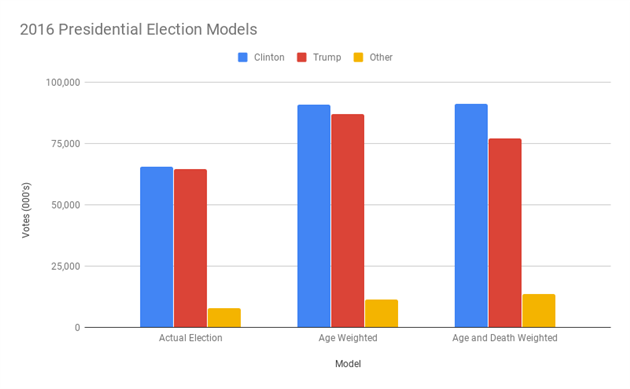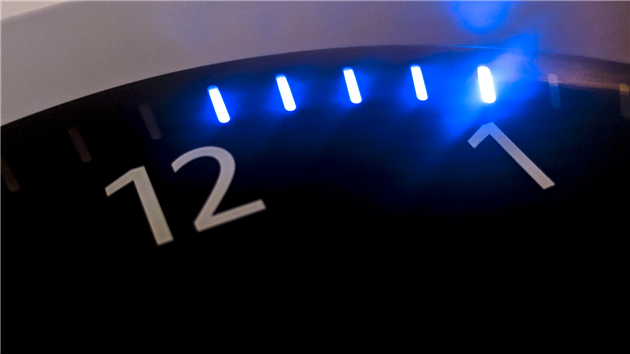ITHCWY Newsletter for April 2020

A 4K one year global cloud cover timelapse.
Niche topic maybe, but if you want to monitor Azure app services via Google Sheets then I've got you covered.
Previously:
I don't know about you, but when it comes to Google Search Console I spend about 0.01% of the time adding sites and 99.99% analyzing existing ones. And yet when signing into Search Console with many verified sites the interface is ALL about adding a new one. Maybe 10% of the UX would be reasonable but it looks for all the world like I have nothing added.
To get to my sites I need to click the hamburger. Come on Google, being mobile first doesn't have to mean being desktop hostile.
Clicking the hamburger isn't even enough. This just brings up a practically blank sidebar. I then need to expand the 'Search property' drop down. Finally I get a needlessly scrolling list of my sites.

A 4K one year global cloud cover timelapse.
Niche topic maybe, but if you want to monitor Azure app services via Google Sheets then I've got you covered.
Previously:
I've just launched a redesign of I Thought He Came With You. The main thrust is to make the site more usable on desktops. Which seems nuts, but the data doesn't lie. The site has low mobile traffic and for a while I thought this was some kind of technical issue. I optimized the design heavily for mobile and spent a lot of time on speed and some AMP. I guess it's the content. Google loves it when I write documentation for them and doesn't think I have anything useful to say on politics. They're probably right. So I've gone back to having an old school sidebar and I've taken the performance hit of using Bootstrap to get some better looking forms and navigation without spending a lot of time on it. I hope you enjoy it, and if you find anything broken please email or leave a comment.

More Bangalore: Timelapse featuring Tipu Sultan's Summer Palace, Lalbagh Botanical Garden, KR flower market, Bangalore Palace and Cubbon Park.
Coastal: an abstract timelapse of the California coast.
Jesse Wegman has written a book, Let the People Pick the President: The Case for Abolishing the Electoral College (review) and a NYT op-ed on switching to a more rational way of electing the President. If you support this idea I have a page on the topic with four concrete things you can do to help.
Hike to Kirby Cove Beach (Marin Headlands near San Francisco).
Tool to backup locked files on Windows 10 - great for XCOPY backups or just grabbing a locked file.
Previously:
"Please be careful not to update while in riding on vehicles, such as trains, or in environments where 2.4 GHz band radio waves such as Wi-Fi, microwave ovens, cordless phones and many other radio waves are intermingled."
It looks like I need to travel to the United States National Radio Quiet Zone in West Virginia to update the firmware in my headphones, and I don't think that's on the cards for several months so I hope the update isn't important.
Nice touch that they gave an example of a vehicle though, that really helps.
Maybe use a checksum Sony?
We May Be Living in a Simulation, but the Truth Still Matters
I like this article because Kara Swisher actually gets the history right. Read my series on this starting with Can I move to a Better Simulation Please?.

A timelapse portrait of San Francisco on New Year's Eve 2019.
Hike: Mt. Livermore on Angel Island
Catfood Earth 4.00 has been released. The new version includes 4K remastered day, night and cloud images as well as the latest timezone database.
It's a month for updates - you can also grab Catfood WebCamSaver 3.20 which includes an updated list of working webcams around the world. WebCamSaver is a Windows screensaver that shows you a feed of open webcams.
Meeting defragmenter is real!
How to fix the Washington Post democratic candidate quiz.
Previously:
Back in 2016 I shared an idea for a tool that would automatically arrange meetings to maximize stretches of production time. As a marketing genius I called it Meeting Defragmenter.
I just read about Clockwise, a startup that is doing exactly this. Right now it supports GSuite and it looks like Office365 is coming soon. Can't wait to try it!

Photo of the transit of Mercury on Nov 11.
Kidlapse is live - make a movie of your child growing up.
Previously:
Kidlapse is now live. This is a service I've been working on that uses machine learning to recognize faces and then rotate and zoom you so get pretty good alignment between each photo. You upload one photo per month and Kidlapse then creates a timelapse movie of your child growing up. If that sounds like something you'd be interested in sign up and give it a try.